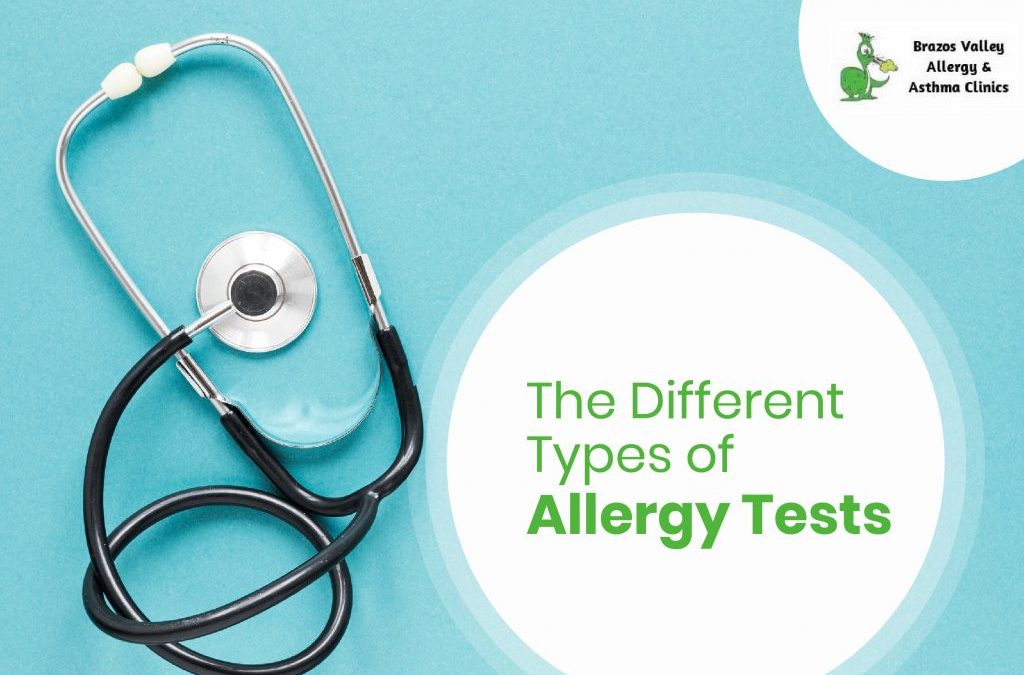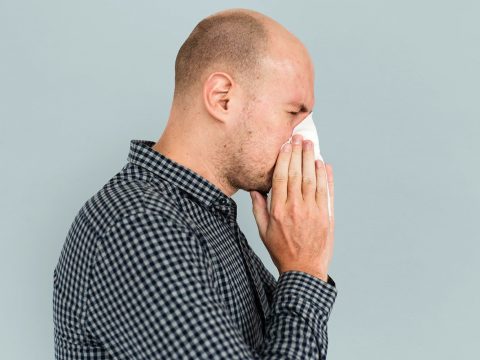- 979-485-9287
- office@bvallergy.com
-
 979-251-7804
979-251-7804
The Different Types of Allergy Tests

Determine a Specific Allergen Through Pollen Allergy Test
June 16, 2020
Different Methods in Diagnosing Food Allergy
July 14, 2020Overview
According to the American College of Allergy, Asthma, and Immunology, more than 50 million people in the United States have some kind of an allergy. Having allergies are so common that going to the doctor for treatment and diagnosis may not be needed anymore. However, you’re wrong. You need to talk to an allergist so that he can administer effective therapies that can help alleviate your pain. Allergists are experts in their field with specialized training that allows them to identify the source of your allergies and accurately diagnose your condition. They can develop personalized plans to help eliminate your symptoms and provide you with the most cost-effective treatment. However, before they can give you the right treatment, they need to perform allergy tests on you.
Why Do You Need to Take an Allergy Tests?
It is normal that once in a while, we get a runny nose, blocked sinuses, or watery eyes. There’s nothing to be worried about. However, when these symptoms persist for a long time, then you might have been exposed to a substance that triggers an allergic reaction. If you have allergy symptoms, you may get relief from over-the-counter drugs. But if it doesn’t work, you better talk to your doctor and take an allergy test.
Different Types of Allergy Tests
An allergy test is an examination performed by an allergist to determine whether you are allergic to a specific substance. Allergy testing can help find allergies from the things you eat, touch, or even breathe in. It is important to note that allergy tests alone are generally not enough. Your doctor may also examine your medical history in diagnosing allergies. Your doctor might also ask about your symptoms. The doctor will want to know when your symptoms occur and how often they happen. It is also possible that your allergist will ask about the environment of your home and work as well as your eating habits. These can help provide clues and pinpoint what you are allergic to. Here are some of the different types of allergy tests:
-
Skin Prick Test
A skin prick test also called a puncture or scratch test checks for immediate allergic reaction to many different substances at once. This test is usually done to identify allergens such as pollen, pet dander, mold, dust mites, and certain foods. In this test, the doctor will place a drop of the possible allergen on your skin. The doctor will then lightly prick or scratch the spot with a needle through the drop. Children are pricked on the upper back while adults are tested on their forearms.
If you are allergic to the substance, then your skin will develop redness, swelling, and itching in the area where you were pricked within 20 minutes. You might also see a wheal that looks like a hive. Usually, the larger the wheal, the more likely that you are allergic to the allergen. The doctor will then clean your skin with alcohol to remove the marks.
-
Allergy Patch Test
Patch testing is a skin test used to find the cause of a possible allergic reaction on the skin. During patch testing, different substances will be taped on the skin. The patches are typically placed on the back and removed after two days. The area where the patches were will then be evaluated by the allergist. It is important to get your skin ready for your patch test. Avoid sun exposure 1 to 2 weeks before the patch testing. Do not use topical medicines on the area where patches may be placed.
The area where the patches will be placed should be dry. Do not apply anything to the test area. This includes soaps, ointments, and moisturizers. Do not scratch, rub, loosen, remove the patches, or expose the test area to direct sunlight. And as much as possible, avoid hot areas and activities that can cause excessive sweating.
-
Specific IgE Blood Test
Blood tests can test for a range of allergies that include food allergies, seasonal allergies, drug allergies, and pet allergies. Blood tests are very helpful when people have skin conditions or are taking medicines such as antihistamines that could interfere with skin testing. This type of test is also appropriate in situations where a patient has skin rashes that could prevent the doctor from accurately reading the skin test results. Along with diagnosing current allergies, blood tests can also be part of the treatment process that doctors use to test the progress of allergies in young children.
The test procedure is fairly straightforward and does not require any preparation. In blood testing, your doctor will take a blood sample and send it to the laboratory. An allergen will then be added to your blood sample. The lab will then measure the number of antibodies your blood produces to attack the allergens. Your allergist will interpret the results while taking into consideration your medical history and other findings from your evaluation.
-
Oral Food Challenge Test
A food challenge test is a test that is used to determine whether a person is allergic to a specific food. This procedure happens under medical supervision to accurately diagnose or rule out a true food allergy. In this test, samples of the suspected food may be eaten on its own or mixed with other food. Sometimes, the food may be disguised in the form of a capsule. After you’ve taken the suspected food, you are monitored to see if a reaction occurs.
-
Drug Challenge Test
The drug challenge test is usually performed on certain individuals to confirm if they have a drug allergy or to determine if they may tolerate a drug that they are currently avoiding. A patient is given incremental doses of a drug starting from a very small dose. After each dose, the doctor will observe and assess if there is any reaction before giving you the next dose. Once the final dose is given, the patient undergoes an additional observation period and final assessment. Because of the risk that the patient will develop an adverse reaction, drug challenges are always performed under physician supervision.
Conclusion
It is important that you know if you are allergic to something or not so that proper precautions can be taken. By knowing which substances cause your body to overreact, you can avoid your allergy triggers. Control your allergies, but don’t let them control you.
Dr. Paul Jantzi, a board-certified allergist and immunologist in Brazos Valley Allergy & Asthma Clinics, provides allergy treatments in Texas with office locations in Bastrop, Brenham, College Station, Columbus, Giddings, and La Grange. They will help you develop a treatment plan to help you manage your allergy symptoms. Schedule a consultation to learn more!




